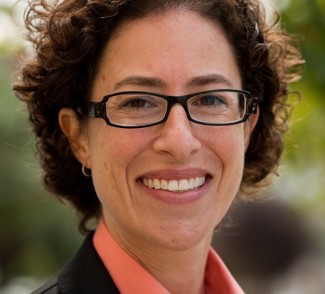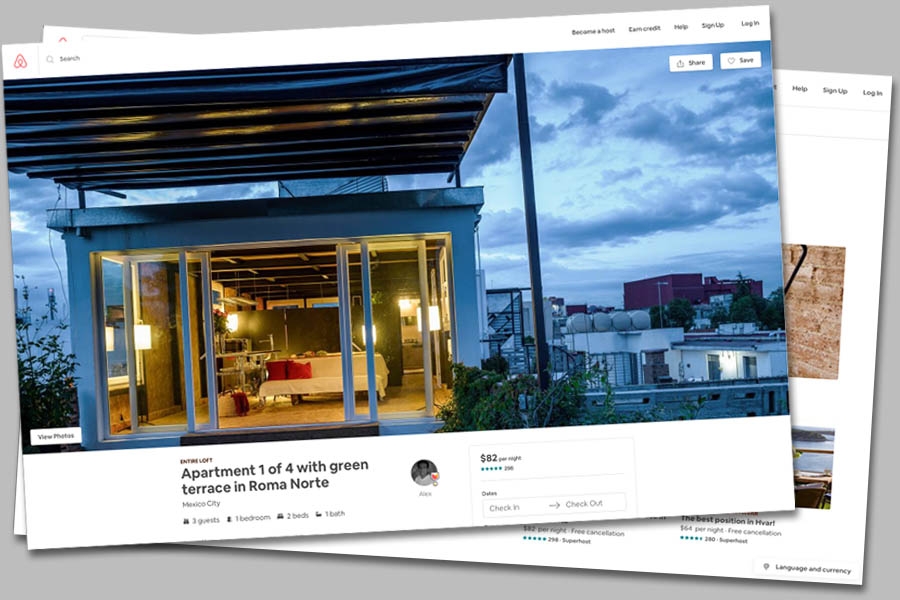A conversation with Airbnb’s public policy director for Oregon.
Portland has a love-hate relationship with Airbnb. The home sharing service netted hosts and the state big money last year. Hosts took home about $82 million. More than half of Portland hosts used that money to keep their homes. The state made $1.5 million off transient lodging taxes from Airbnb rentals.
 But the company has also come under fire, locally and nationally. Policymakers say Airbnb raises rents, gentrifies neighborhoods, eats up affordable housing stock and gives way to spooky-sounding “ghost hotels” (entire apartments or floors rented out as Airbnbs).
But the company has also come under fire, locally and nationally. Policymakers say Airbnb raises rents, gentrifies neighborhoods, eats up affordable housing stock and gives way to spooky-sounding “ghost hotels” (entire apartments or floors rented out as Airbnbs).
We checked in with Laura Spanjan, Airbnb’s Oregon director of public policy, regarding short-term rental trends, affordability concerns and the company’s current priorities.
What are the trends in the market for short-term rentals in Oregon?
Airbnb is about creating economic opportunity. In Oregon middle class families use the extra income to make ends meet. Fifty eight percent of Airbnb hosts in Portland use the extra income to stay in their homes. Right now people are able to be entrepreneurs. They can share their hobbies and passions with people coming in from other places.
It’s definitely a trend to see people hosting around big events, commencements, football games. Eight eight percent of hosts booked for the Eclipse were hosting for the first time.
Another trend is more boutique hotels and small bed and breakfasts are joining our platform. We’re launching a support platform to make it easier for them to share their space on Airbnb. That’s a trend not just in Oregon but in other states as well.
How do rural Airbnb trends differ from those in Oregon’s metros?
We’ve seen our rural listings increase. People are doing it to make ends meet, and for events. People are opening homes either seasonally or for big events, and those listings tend to be in rural places.
How do feel about the city’s decision to waive development fees for ADUs if they’re not rented out as Airbnbs? [Earlier this month, the city eliminated development fees for accessory dwelling units— but only on the condition that homeowners don’t use them for Airbnbs for ten years.]
It’s great to see the city taking a constructive step toward building more housing. We also know people use ADUs differently, whether that’s for short or long-term rentals. Our focus remains on working closely with the city.
How do you address concerns that Airbnbs are taking up space that could be used for affordable housing?
Look at the numbers. ECONorthwest did a study for us where they determined the listings booked full-time [more than 270 days in a year] represent .03% of the city’s housing stock. There are a lot of factors involved in the housing crisis, including all the people moving here and a lack of development of affordable units. Only a small percentage of the city’s housing units are short term rentals.
But we still want to do the right thing. We introduced the One host, One home policy in 2017. We removed over 500 listings through that policy. The numbers show that we’re not affecting affordable housing supply, but we still want to ensure we aren’t a problem. We really want to ensure we’re having one host, one home. [The “One Host, One Home,” policy is an attempt to crack down on commercial operators and their ghost hotels.]
Recent studies, including a New York study published in the New York Times this month, show Airbnbs raise rents in major metros. What are you going to do to stop that from happening?
Let’s talk about that New York study. If you read all the articles after you’ll see that the comptroller’s study is not only misleading, it’s based on the wrong data. They used data in a way that gave them false conclusions. The organization where the data came from issues a press release saying the data was wrong.
Our study didn’t quite look at rents so we don’t know the impact of that in Portland. It’s probably a very similar impact to that of the number of units. Since we have very small number of units rented full time we’re probably not impacting rents.
What are your upcoming policy priorities for Airbnb in Oregon?
Our priorities are to continue to work with the city. We want to work on a registration system that would allow hosts to apply directly. We want to partner with the city moving forward. We want to allow hosts to share their homes in a responsible and legal way.
To subscribe to Oregon Business, click here.




